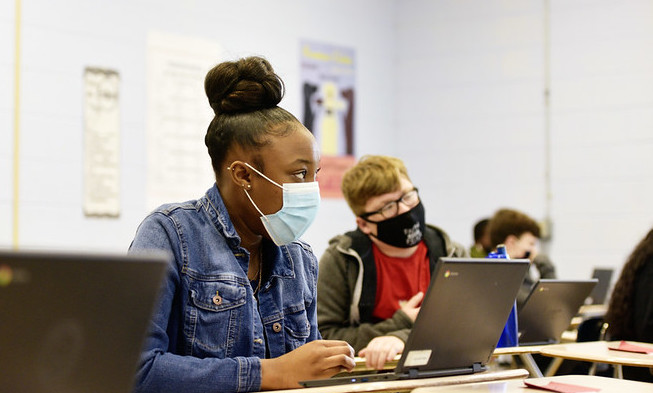
Due to the impact of COVID-19 on education systems, school districts across Tennessee have been considering strategies to recover student learning and offer high-quality instruction despite disruptions. This spring, SCORE held an Institute focused on one research-based option that delivers proven results — high-dosage tutoring (HDT). During our SCORE Institute, attendees heard from districts who were running pilot tutoring programs and seeing positive outcomes.
Lenoir City Schools (LCS) successfully piloted high-dosage tutoring for high school geometry, a crucial subject given the importance of upper-grades math proficiency for college readiness. The pilot was targeted to students who missed in-person geometry last spring as a result of school closures, and the positive outcomes of the program were obvious:
- Students love the one-on-one attention of tutoring. Even when tutoring group sizes ranged from one to five, students shared that they appreciated the individual attention they received and having a safe space to ask questions about content they didn’t understand. The initial pilot group expanded by word-of-mouth and students recruiting their friends to join.
- Tutoring can pinpoint critical misconceptions. Students took an ACT-aligned pre-test, and tutoring sessions were aligned to address students’ skill gaps. Tutors shared that they were able to more quickly meet students at their current level of knowledge and get at the heart of those gaps. On their post-tutoring test, 95 percent of students showed growth.
For this pilot, family engagement and strong tutor selection were critical for success. Students and families were encouraged to opt into the process, and tutors had strong content knowledge and relationship-building skills. Tutors in the pilot were current or recently retired teachers who were paid competitive stipends for their tutoring time. Tutoring sessions were offered during homeroom periods to ensure equitable access for interested students. In order to ensure standards-aligned instruction, tutors consistently utilized high-quality instructional materials adopted by the district.
Looking ahead, LCS is exploring near-peer tutoring models, as well as community partnerships to continue these practices in the coming school year. By incorporating high-dosage tutoring as an enduring practice, LCS and other districts across Tennessee will recover student learning and build student relationships and confidence that was lost through learning disruptions.
For school districts interested in implementing their own high-dosage tutoring model, visit SCORE’s Education Recovery Resources page to learn more about the practice.
Alexis Parker is SCORE’s research and data analyst.
Read More:
